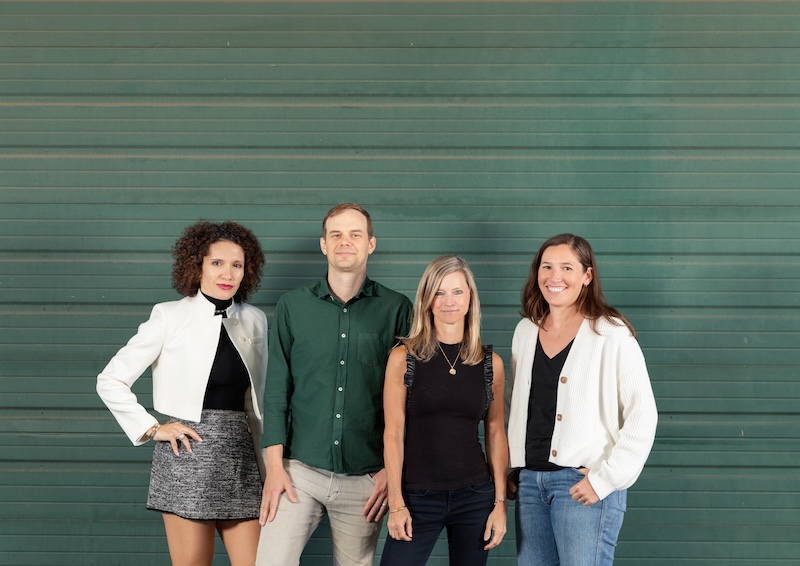How Nameless CPG is rolling up wellness brands

More roll-up companies are popping up to scoop up struggling brands.
Nameless CPG, which officially launched last December, was co-founded by Albert Swantner and Kate Herling to scoop up CPG brands, with a particular focus on wellness, supplements and better-for-you food.
The idea came about when Swantner and Herling began observing small brands struggling to extend their runways to fund further growth. Swantner is also a general partner at The Fund, a Texas-based venture capital firm, while Herling co-founded the fruit-infused water company Sway Water.
Nameless CPG has acquired five brands to date, three of which have been publicly announced. Its stated goal is to grow the combined revenue generated by its brands from $9 million to $20 million this year while streamlining operations. Swantner and Herling see a big opportunity in rolling up CPG brands right now as more companies are pivoting to focus on sustainable growth; they believe a roll-up company can do that more efficiently.
The brands now under the Nameless CPG umbrella include Ladybird Provisions, which sells pre-made butter coffee, sexual wellness brand Nakey and Wile Women, a plant-based supplements and tinctures brand geared at women over 40. Wile Women was founded in 2021 with founding partner and actress Judy Greer and had previously raised a $3 million seed round in 2022, led by Serena Williams’ VC firm.
“We knew the timing was right because a lot of these brands aren’t really venture-fundable anymore,” Swantner said. “But that doesn’t mean those brands are worthless.”
Swantner and Nameless CPGs’ argument is that some startup consumer brands don’t currently bring in enough revenue to operate as standalone companies. By pooling resources and relying on a single team to operate the portfolio, the consortium of brands can grow together to make it to the next expansion stage.
Ad position: web_incontent_pos1
“CPG companies raised unprecedented funds in 2020 and 2021,” Swantner said, which he said led to an immediate focus on scaling into retail rather than sustainable growth. Now, many of these companies have hit a wall. In his search for potential acquisitions, Swantner said he’s found many founders to be drained. “CPG is really hard and can be exhausting,” he said.
Nameless CPG is trying to approach the roll-up model by carving out a niche in specific CPG categories. All of Nameless CPG’s acquired brands fall under wellness, within categories like supplements, women’s health and better-for-you foods. Those categories will continue to be the focus.
“We know the aggregators aren’t doing well,” Swatner said, referring to Amazon and Shopify aggregators. Thrasio, one of the most prominent Amazon aggregators, recently filed for Chapter 11 bankruptcy, while Shopify-focused Win Brands Group has gone through multiple rounds of layoffs in the past year. “So we decided to focus on three areas and not just buy whatever is out there,” he added.
Right now, Swantner and Herling are self-funding the business. “We’re also not paying cash for the brands, we’re doing equity purchases,” Swantner said. “Sometimes we take on some debt, so we do negotiate all those pieces.”
Nameless CPG has a few brand deals in the works that are due to close in the coming months. Swantner said the umbrella company doesn’t have a specific acquisition quota or target. But, he said he has no plans to embark on a brand-buying spree.
Ad position: web_incontent_pos2
The roll-up company said it is prioritizing brands that have already entered at least a couple of retailers and are looking to expand into more channels. “Our target is to have them [the brands] at least passing a million dollars in revenue and being able to turn a profit once they run into the Nameless model,” he said.
Once a brand is acquired, the founder continues to own a piece of the company. But the amount of equity is determined on a case-by-case basis, Swantner said. Similarly, the founders’ everyday roles at their companies post-acquisition are individually determined.
Nameless CPG has assembled a team of 10 to help operate the brands. “We take on things like the marketing, the 3PL and bring them in-house to save on costs,” he said. Nameless CPG also just hired a CMO to help lead the brands’ marketing strategies.
Rachel Hirsch, founder and managing partner of Wellness Growth Ventures, said it’s yet to be seen whether operating within a roll-up is an effective exit for long-term growth. As Hirsch sees it, while a roll-up can help save a brand from going under, the new ownership has to be able to effectively operate multiple brands simultaneously.
“From my seat, [exiting to a roll-up] is not my goal,” she said. “It says that you didn’t create something that’s valuable enough for a proper exit.”
But as venture capital gets harder to come by, Hirsch understands why handing over a company is appealing for founders. Not being able to raise capital to fund big-box distribution or new product development can be an obstacle. That, in turn, can drive founders to sell perhaps sooner than they would initially anticipated. “As tech money is pulling out of consumer brands, there is a recalibration happening,” Hirsch said. “We’re still seeing how that plays out and how well the portfolio companies can operate multiple brands.”
For Nameless CPG, Swantner said the roll-up is courting startups that have enough brand equity but are too small to be able to scale further on their own. “Our pitch to the founder is that ‘you’ve done a lot of work these past few years, you can let us do the work and come along for the ride,'” he said.

